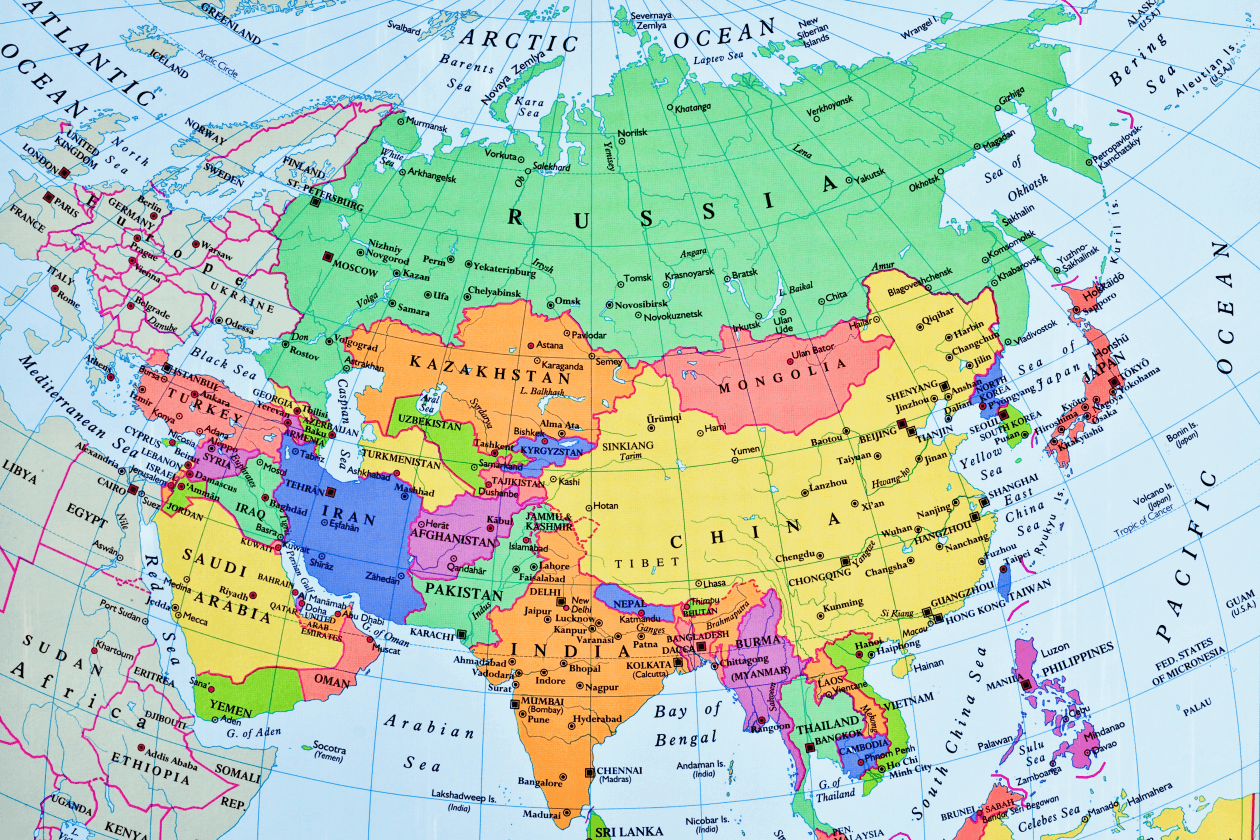It’s been an eventful first six months of the year for emerging markets.
Geopolitical issues have dominated the headlines, with the ongoing invasion of Ukraine and hostilities in the Middle East. As the world waits to see who’ll become the next US president in November, emerging markets have also been active on the electoral front.
In June, global attention turned to India for the results of its six-week election. Predictions indicated victory for Prime Minister Narendra Modi and the Bharatiya Party (BJP), securing a third term. But the outcome was unexpected. The opposition parties gained enough seats to strip the BJP of its majority, forcing it to form a coalition government.
The growth outlook for India’s economy remains positive though. The IMF forecasts gross domestic product (GDP) growth of 7% for 2024-2025 and 6.5% for the year after.
In South America, the Mexican election result was clearer cut. Claudia Sheinbaum won and became the country’s first female president. Her appointment triggered market volatility though, as the extent of her win caught many off guard.
The Mexican stock market fell following the news and the Mexican peso came under pressure. The magnitude of this victory could allow the party to implement sweeping changes with little resistance, which caused concern among investors.
This article isn’t personal advice. If you're not sure if an investment is right for you, ask for financial advice. All investments fall and rise in value, so you could get back less than you invest. Past performance isn’t a guide to the future.
China cuts
China’s economy grew 4.7% year-on-year in the second quarter of 2024 (April-June), following a 5.3% increase in the first quarter (January-March), which fell short of expectations. This raises the question of whether policymakers are doing enough to achieve their 5% annual growth target.
Recently, China’s central bank cut several key short and medium-term interest rates, signalling signs of further support. However, the market believes more stimulus is needed to lift the economy out of its current malaise.
Chinese households have built up record levels of savings, but the real estate collapse and broader economic issues have driven consumer confidence to near-record lows. Turning these savings into spending could be crucial to driving China’s economic recovery.
Increasing exports have helped offset softer domestic demand, but trade tensions with the US and Europe could pose challenges.
For example, tariffs on electric vehicles have been imposed by both regions, making it even more important to try and stimulate domestic demand to help the economy keep growing.
How have stock markets performed?
While it’s been a positive 12 months (in sterling terms, to end of July 2024) for Asian and emerging markets, performance has varied significantly across the sector.
The MSCI AC Asia Pacific ex Japan Index increased 7.57%* over this period. Meanwhile, broader emerging markets, as measured by the MSCI Emerging Markets, rose 6.86%.
Despite these gains, both regions underperformed the MSCI AC World index which returned 17.75%, with substantial contributions from the US.
Stylewise, the MSCI Emerging Markets Value Index outperformed the MSCI Emerging Markets Growth Index by 3.35%, returning 8.61%.
Higher-risk smaller companies outperformed larger companies with the respective MSCI indices returning 13.29% and 7.25%.
India’s economic growth has significantly boosted its stock market. Despite a slight wobble following the unexpected election results, India has been one of the top performing markets globally – the MSCI India index returning 36.41% over this period.
Elsewhere in Asia, Taiwan’s stock market also delivered strong returns. This was mainly driven by the success of TSMC, the world’s largest semiconductor company, which makes up a large part of the index.
In contrast, China, the largest part of the Asian and emerging markets indices, experienced considerable volatility. The MSCI China Index fell 12.03% during this period.
This has been a disappointing period for investors in Chinese shares. Nevertheless, stock market valuations in China appear low, especially compared to peers like India and the US.
For long-term investors, this could present an opportunity, though valuations and share prices could always get lower from this point.
Beyond Asia, emerging Europe has been a standout performer with the MSCI Turkey index returning 34.62%*, despite an ongoing inflation crisis. The Turkish central bank raised interest rates to extremely high levels to help control inflation, which reached over 75% earlier this year.
In Latin America, stock markets have underperformed over this period, with the MSCI Latin America Index falling by 8.65% – weighed down by Brazil and Mexico.
Annual percentage growth
July 19 – July 20 | July 20 – July 21 | July 21 – July 22 | July 22 – July 23 | July 23 – July 24 | ||
|---|---|---|---|---|---|---|
MSCI India | -9.74% | 35.38% | 18.31% | 2.19% | 36.41% | |
MSCI Turkey | -28.71% | -3.80% | -3.23% | 75.57% | 34.62% | |
MSCI AC World | 0.53% | 26.26% | 2.75% | 7.34% | 17.75% | |
MSCI EM Small Cap | -5.31% | 40.11% | -5.09% | 11.66% | 13.29% | |
MSCI Emerging Markets Value | -13.65% | 20.21% | -2.67% | 6.53% | 8.61% | |
MSCI AC Asia Pacific ex Japan | 1.94% | 14.12% | -5.90% | 1.15% | 7.57% | |
MSCI EM Large Cap | 1.09% | 12.84% | -8.77% | 1.95% | 7.25% | |
MSCI Emerging Markets | -0.25% | 14.23% | -8.33% | 2.93% | 6.86% | |
MSCI Emerging Markets Growth | 13.92% | 8.71% | -13.42% | -0.37% | 5.26% | |
MSCI EM Latin America | -29.94% | 18.60% | 4.72% | 24.67% | -8.65% | |
MSCI China | 16.30% | -5.23% | -18.00% | -3.54% | -12.03% |
If you’re looking to invest in emerging markets and are happy with the higher risk that comes with it, a broad global emerging markets or Asian fund is a good starting point.
Other funds could then be added to a portfolio to invest in a particular theme, area, or country. It’s important to take a long-term view of at least five years though.
How have Wealth Shortlist funds performed?
Asian and emerging markets Wealth Shortlist funds have delivered mixed performance over the year. We usually expect this. A range of managers with different strengths, styles and areas of focus will perform differently in different economic conditions.
Investing in funds isn't right for everyone. Investors should only invest if the fund's objectives are aligned with their own, and there's a specific need for the type of investment being made. Investors should understand the specific risks of a fund before they invest, and make sure any new investment forms part of a diversified portfolio.
For more details on each fund and its risks, please see the links to their factsheets and key investor information below.
Jupiter Asian Income
Jupiter Asian Income was the best performing Asian fund on the Wealth Shortlist over the past 12 months (to end of July 2024). The fund returned 20.34%* over this period versus 5.41% for the IA Asia ex Japan sector average. Past performance isn’t a guide to future returns.
The managers don’t currently invest in any Chinese companies. This has helped short-term performance, but could be a headwind if performance in the Chinese stock market improves.
Jason Pidcock and Sam Konrad, the fund managers, aim to provide an income at least 20% higher than the fund's benchmark, the FTSE Asia Pacific ex Japan Index.
Their stock-picking process looks for ‘quality income’ stocks – these are companies that make plenty of cash, have low levels of debt and are in good financial health.
FSSA Greater China Growth
FSSA Greater China Growth was the weakest performer of our Asian and emerging market Wealth Shortlist funds.
Over the past 12 months, the fund fell by 9.98% versus a 0.33% increase for the MSCI Golden Dragon index. The fund performed much better than the average fund in the IA China / Greater China sector, which fell 16.55%.
Martin Lau and his team look for high-quality companies of all sizes, including higher-risk smaller companies, that mainly operate within China, Hong Kong, and Taiwan.
They favour companies with a competitive advantage that others struggle to replicate, like a well-known brand or being able to raise prices for their products without affecting demand from customers.
Annual percentage growth
July 19 – July 20 | July 20 – July 21 | July 21 – July 22 | July 22 – July 23 | July 23 – July 24 | |
|---|---|---|---|---|---|
FSSA Greater China Growth | 10.69% | 17.06% | -10.95% | -2.08% | -9.98% |
IA China/Greater China | 15.13% | 3.32% | -13.29% | -9.48% | -16.55% |
MSCI Golden Dragon | 12.62% | 5.70% | -12.92% | -2.06% | 0.33% |
Jupiter Asian Income | -7.18% | 17.80% | 11.47% | 3.81% | 20.34% |
IA Asia Pacific Excluding Japan | -0.25% | 18.17% | -4.62% | 0.42% | 5.41% |


